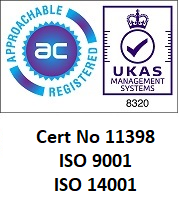What is a valve in chemical engineering?
A valve is a mechanical “gate” used to stop or start the flow of chemical fluids. There are many types and applications of valves, which block the flow and can be easily moved.
A valve is a mechanical “gate” used to stop or start the flow of chemical fluids. There are many types and applications of valves, which block the flow and can be easily moved.
Solenoid coils have many varied applications and can be used to create flow control points in systems directing water, gas, air, fuel or chemicals. Examples of solenoid coil application types include:
Solenoid valves are also used in automatic door locking systems, with the rod entering the door frame to create a secure, electronically controlled lock.
There are many reasons why a solenoid coil will burn out, and usually this can be traced to the operating conditions of the system in which it is installed or environmental factors. It is more common in AC solenoid coils than in DC systems. Some reasons include:
A solenoid coil is a type of valve operated using a small electromagnetic field. When the circuit is switched on, a current passes through the coil. This creates a magnetic field which pulls the valve plunger, either opening or closing the valve.
You can check solenoid coil resistance using a multimeter by following these simple steps:
A solenoid valve coil uses electromagnetic energy to create the lateral motion that opens or closes a valve. Consisting of a copper coil around a ferrous metal rod, the solenoid moves when a current passes through the coil, generating a magnetic field that pulls the rod, opening or closing the valve. Solenoid coils are available as N/O (normally open) or N/C (normally closed).
Also known as an externally-piloted pneumatic solenoid valve, the mechanism works similarly to other solenoid valves but uses air pressure to help keep the valve closed. These are often used where the system has low pressure, vacuum or if there is low, negative or absent pressure in the valve itself.
Yes, you can clean the air intake on a solenoid valve by following these steps:
If the air solenoid valve is not opening or closing, leaking, or overheating, these are signs that it is damaged or that there is a wiring issue. Any Solenoid valve can be tested with a multimeter by following these steps:
A solenoid valve uses electromagnetic energy to open and close the valve. In an air solenoid valve, the closed valve uses a rod to block air from moving from one part of a system into another. The rod must be made from a ferrous metal, such as iron or an iron alloy like steel. To open the valve, an electrical current passes through the solenoid coil, generating a magnetic field which pulls the rod, allowing air to flow through the valve. Air solenoid valves can be manufactured to be normally open or normally closed, with the current moving the rod.
Unit 7 Exis Court,
Veasey Close,
Attleborough Fields,
Nuneaton,
Warwickshire,
CV11 6RT
Phone: 02476 350 958
Email: sales@avalco.co.uk


© 2021 Avalco Ltd. Registered at companies house with no 04403045. Privacy Policy

